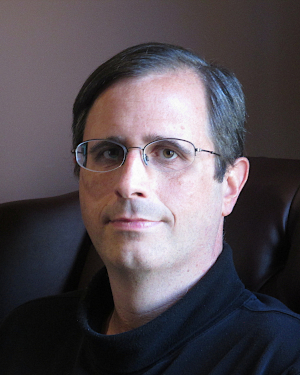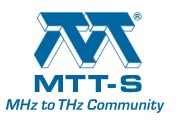
Matthew A. Morgan, Ph.D.
Coupled-Ladder Reflectionless Filters
Abstract - This presentation will describe the circuit manipulations required to convert a well-known Cauer, or ladder topology filter prototype, to a coupled-ladder reflectionless filter prototype, without compromising the optimal transmission response and achieving theoretically perfect impedance match at both ports and at all frequencies. This relatively recent solution to a circuit design problem dating back almost 100 years (referred to then as constant-resistance networks) has sparked a resurgence in interest in absorptive filtering techniques. Practical implementations of coupled-ladder reflectionless filters ranging from discrete lumped elements to monolithic microwave integrated circuits (MMICs) have produced low-pass, high-pass, and band-pass filters operating from the HF to mm-wave bands, and recognition of their advantages has led to increasing adoption as the preferred solution in a number of real-world applications.
Matthew A. Morgan (M’99–SM’17) received his B.S. in electrical engineering from the University of Virginia in 1999, and his M.S. and Ph.D. from the California Institute of Technology in 2001 and 2003, respectively.
During the summers of 1996 through 1998, he worked for Lockheed Martin Federal Systems in Manassas, VA, as an Associate Programmer, where he wrote code for acoustic signal processing, mathematical modeling, data simulation, and system performance monitoring. In 1999, he became an affiliate of NASA’s Jet Propulsion Laboratory in Pasadena, CA. There, he conducted research in the development of Monolithic Millimeter-wave Integrated Circuits (MMICs) and MMIC-based receiver components for atmospheric radiometers, laboratory instrumentation, and the deep-space communication network. In 2003, he joined the Central Development Lab (CDL) of the National Radio Astronomy Observatory (NRAO) in Charlottesville, VA, where he now holds the position of Scientist/Research Engineer with tenure. He is currently the head of the CDL’s Integrated Receiver Development program, and is involved in the design and development of low-noise receivers, components, and novel concepts for radio astronomy instrumentation in the cm-wave, mm-wave, and submm-wave frequency ranges. He has authored over 60 papers and holds twenty patents in the areas of MMIC design, millimeter-wave system integration, and high-frequency packaging techniques. He has written three books, entitled Reflectionless Filters, Principles of RF and Microwave Design, and Relativistic Field Theory for Microwave Engineers.
Dr. Morgan is a member of the International Union of Radio Science (URSI), Commission J: Radio Astronomy, and Senior Member of the IEEE Microwave Theory and Techniques Society. He received the Harold A. Wheeler Applications Paper Award in 2015, and the Microwave Application Award for his work on reflectionless filters in 2022.


